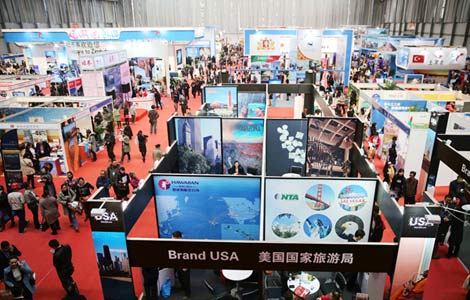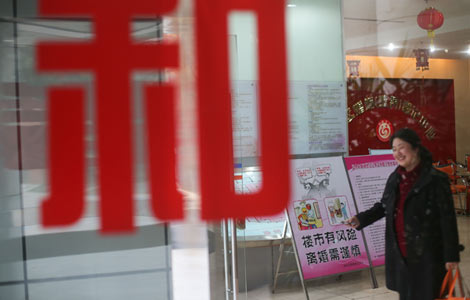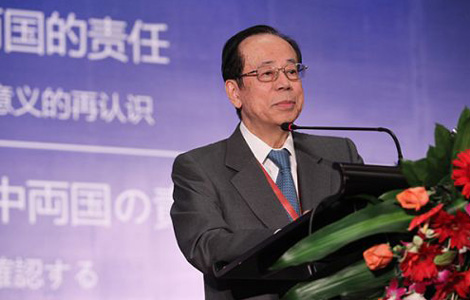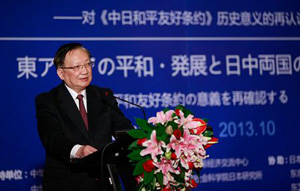Blame Abe for worsening trade
Updated: 2013-10-30 06:58
By Xu Changwen (China Daily)
|
||||||||
Since Shinzo Abe became Japanese prime minister for the second time, relations between China and Japan have gone from bad to worse, and this is having a far-reaching impact on trade between the two countries.
While trade data by country show Japan remains the second-largest trading partner of China after the United States it is likely to be replaced by South Korea if relations continue to sour. Statistics from China's General Administration of Customs show that trade between China and Japan was $329.45 billion in 2012, down 3.9 percent year-on-year, the first decline in three years. Over the first eight months of this year there has already been a year-on-year decrease of 8.5 percent, while over the same period bilateral trade between China and South Korea has grown by 9.4 percent year-on-year to $179.18 billion.
Over the past few years, the gap between the trade volume between China and South Korea and the trade volume between China and Japan has gradually narrowed. In 2010, the trade volume between China and Japan was $297.77 billion, while the trade volume between China and South Korea was $207.17 billion. However, that gap of more than $90 billion had narrowed to about $73 billion by 2012, and it has now dropped to $20.9 billion. With the economic and trade cooperation between China and South Korea deepening, especially with the ongoing negotiations for a free trade agreement, economic and trade cooperation between China and South Korea will enter a new period of development, and South Korea could catch up with or even overtake Japan to become China's second-largest trading partner in terms of trade volume by country.
China and South Korea are complementary on the economic front, and within two decades, China has become both South Korea's largest-trading partner and a major destination for South Korean investment. The progress has been remarkable; especially given the bilateral trade volume has grown faster than the China-US or China-Japan trade volume. For the past 12 years, the trade volume between China and South Korea has maintained an average annual growth rate of nearly 19 percent, while the average annual growth rate for trade between China and the US was 17.6 percent and for trade between China and Japan 12.8 percent.
However, although China has seen growth in its exports to South Korea in recent years, it continues to register a trade deficit with South Korea. This rose from about $70 billion in 2010 to some $80 billion in 2012, and the deficit has already hit $57.8 billion in the first eight months this year. It is predicted the annual figure will possibly reach $90 billion. Therefore, South Korea needs to further open up its market and expand its imports from China, so as to strike a balance in bilateral trade and achieve sustained economic and trade development.
Currently the second-largest trading-nation partner of China, Japan will not resign itself to becoming a less significant player in the Chinese market. Japanese companies have expanded their efforts to develop the Chinese market since this year, including raising their research and development inputs and developing products tailored to Chinese consumers.
As Japanese media have pointed out, enhanced economic and trade cooperation between China and Japan will help ease the already strained relations. The Japanese government should render strategic support for the Japanese companies that have business operations in China, and facilitate the trilateral free trade talks between China, Japan and South Korea.
Even so, it will be just a matter of time before South Korea overtakes Japan to become China's second-largest trading partner in terms of trade volume by country. An important reason for this is China's imports from South Korea have grown much faster than its imports from Japan in recent years.
Statistics show that in 2010, China's imports from Japan totaled $176.71 billion and those from South Korea $138.4 billion. The gap narrowed to around $9 billion in 2012, and in the first eight months of this year, China has already spent $118.51 billion on imports from South Korea, a year-on-year increase of 12.3 percent, while it has spent $104.86 billion on imports from Japan, a 12.7 percent decrease from a year ago.
To a great extent, this is a result of the decreasing investment by Japanese companies in China. According to the Japan External Trade Organization, or JETRO, the first half of this year witnessed a year-on-year decrease of 31.2 percent in Japanese investment in China. This will not only affect Sino-Japanese economic and trade cooperation but also undermine Japan's economic recovery. For the sake of its economy, it's high time for Abe to take measures to improve Japan's ties with China.
The author is a researcher at the Chinese Academy of International Trade and Economic Cooperation, affiliated to the Ministry of Commerce.
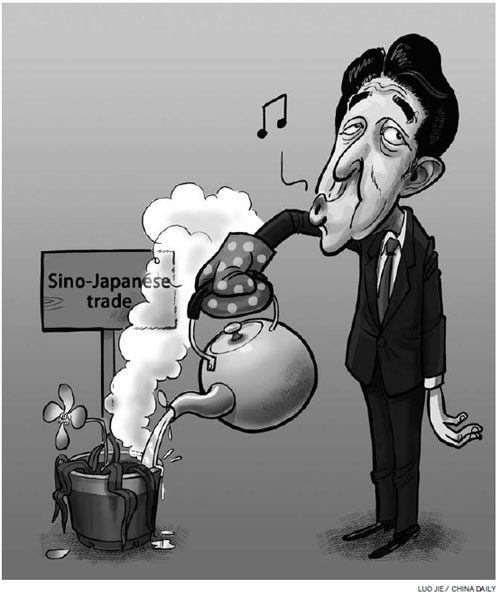
(China Daily 10/30/2013 page9)
Most Viewed
Editor's Picks

|

|

|

|

|

|
Today's Top News
NSA denies reports on US spying in Europe
Think tank report focuses on new reforms
US approves chemical probes against China
UN urges end of US embargo on Cuba
SUNY recruits students in China
China and the US can learn from each other
Experts detail risks to growth
IMAX: Coming to a home near you
US Weekly

|

|


